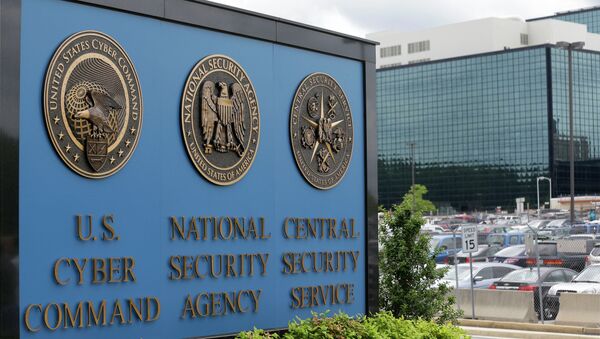According to a source cited by the Washington Post, the priority of spying on Russia has increased for the first time since the dissolution of the Soviet Union, and while intelligence agencies continue to consider the fight against terrorism their top priority, they’re beginning to divert a growing amount of attention and funding to conducting surveillance operations against Moscow.
Scott Rickard, a former intelligence officer for the USAF, the NSA, and the Directorate of National Intelligence (DNI) told Sputnik that, in a sense, the Cold War has never ended, and right now the US intelligence community is merely "piling on the rhetoric" being put out by both the Republican and Democratic representatives in the US government.
"And when you have individuals like James Clapper who say that Putin is just seeing how far he can push the United States, let’s be clear that the Russians are responding to a massive amount of pushes against Russia in former Russian territories. You don’t see Russia flying warplanes up to the coast of the United States on a regular basis, and you certainly don’t see any incursions of American territories – or former American territories if there were any – by the Russians. In fact what you do see is a tremendous amount of activity in the Baltic area as well as in Syria. And these are all incursions promoted not only by the United States but their allies," Rickard said.
He further remarked that by assigning more operatives to Russia-related operations, the US intelligence community is unlikely to find itself short-staffed when dealing with other threats as it commands a much larger pool of resources than some people imagine.
"What you do have is a much larger network that works outside the CIA. There companies like Stratfor, and other companies that are outsourced but aren’t included in those budgets. These NGOs that I mentioned as well – these individuals are operating at a very intertwined level with the CIA. At the same time you also have the State Department, and you have the individuals working at the embassies, and the individuals who are working on the commercial side in different countries. So all of these intertwined capabilities are assimilated into the intelligence community," Rickard explained.
He also pointed out that that the increase in anti-Russian rhetoric can also be at least partially attributed to the ongoing US presidential election campaign, as Hillary Clinton is using it as a "tool, sort of her latest stint at McCarthyism against Donald Trump."
"That’s the kind of unfortunate rhetoric that goes left and right in order not only to support the agenda of the oligarchs who are financing these elections, but also to divide and conquer," Rickard concluded.

